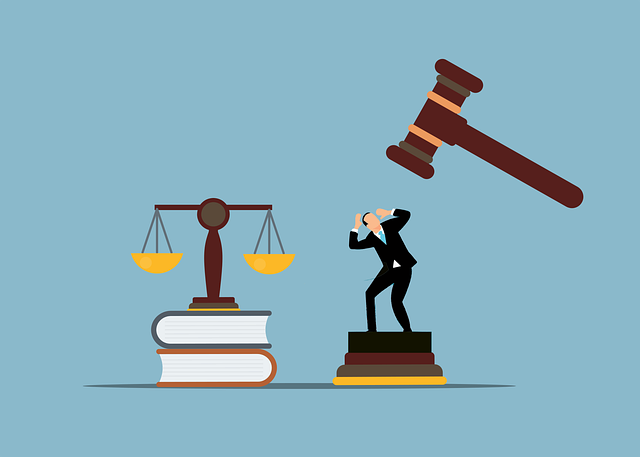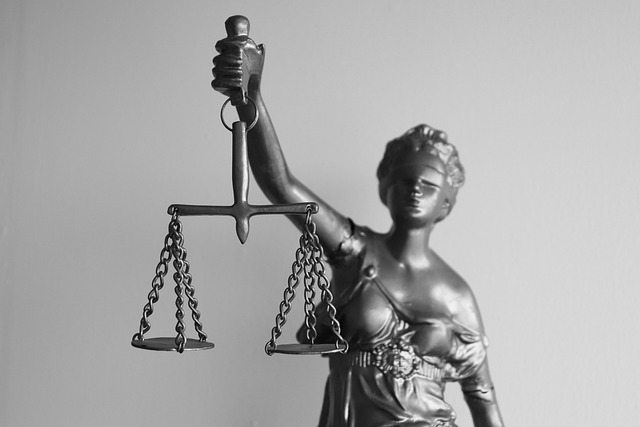Securities fraud cases present complex Regulatory Challenges, demanding deep financial market knowledge, sophisticated evidence analysis, and innovative strategies due to global legal frameworks' diversity. Key stakeholders, including financial institutions, law enforcement, and regulatory bodies, collaborate to enhance market integrity through stringent regulations, advanced data analytics, and restorative justice models. Balancing punishment with harm repair is crucial in these cases, requiring a multifaceted approach to navigate the intricate Regulatory Challenges in Securities Fraud Cases effectively.
“Unraveling the intricate world of criminal law, this article delves into the multifaceted aspect of securities fraud, a complex web of regulatory challenges. We explore jurisdiction’s role in shaping legal frameworks and its impact on case management. Financial institutions’ prevention strategies are examined, along with advanced investigation techniques for unearthing elaborate fraud schemes. Furthermore, we analyze the application of punitive measures and restorative justice, offering insights into effective handling of securities fraud cases, especially in navigating regulatory hurdles.”
- Understanding Securities Fraud: A Complex Web of Regulations
- Challenges Arising from Jurisdiction and Legal Frameworks
- The Role of Financial Institutions in Case Prevention
- Investigating Techniques to Uncover Complex Fraud Schemes
- Punitive Measures and Restorative Justice in Fraud Cases
Understanding Securities Fraud: A Complex Web of Regulations

Securities fraud cases present a complex web of regulations and regulatory challenges that can make them some of the most intricate legal battles. Navigating this landscape requires an in-depth understanding of financial markets, complex legislation, and the ever-shifting rules governing public offerings and investor protection. Prosecutors must demonstrate intentional deception aimed at manipulating stock prices or market trends, often involving intricate financial schemes and sophisticated techniques to avoid detection.
Defending against securities fraud charges is equally demanding. A winning challenging defense strategy demands a meticulous examination of facts, witness testimonies, and documentation. Attorneys must uncover any weaknesses in the prosecution’s case, challenge the interpretation of evidence, and present compelling arguments that their clients acted within legal boundaries. An unprecedented track record in securing favorable verdicts or avoiding indictment underscores the expertise required to navigate these regulatory challenges and protect the rights of those accused.
Challenges Arising from Jurisdiction and Legal Frameworks

The landscape of criminal law cases, particularly in securities fraud, is fraught with regulatory challenges. Different jurisdictions have varying legal frameworks, leading to complexities when dealing with cross-border transactions and crimes. This diversity in regulations can result in inconsistencies in how cases are handled, investigated, and prosecuted. For instance, what constitutes fraudulent activity in one country might be seen differently in another, creating a maze for legal professionals to navigate. As global financial markets become increasingly interconnected, these jurisdictional hurdles have become more pronounced, demanding innovative strategies to ensure consistent application of justice.
Securities fraud cases often require an unprecedented track record of evidence and legal expertise. The intricate nature of financial transactions makes it crucial for lawyers to possess a deep understanding of both the criminal law and the specific regulatory frameworks at play. Moreover, the case law in this area is constantly evolving, adding another layer of complexity. This dynamic environment necessitates that legal professionals stay abreast of changes, ensuring they can deliver effective representation for their clients while upholding the integrity of the justice system, which extends beyond borders to impact the philanthropic and political communities alike.
The Role of Financial Institutions in Case Prevention

Financial institutions play a pivotal role in preventing criminal law cases, particularly those involving securities fraud. They act as gatekeepers by implementing robust Know Your Customer (KYC) procedures and monitoring transactions for any suspicious activity. These measures help identify potential red flags early on, allowing regulatory bodies to intervene before fraudulent schemes escalate.
The prevention process involves close collaboration between financial institutions, law enforcement agencies, and the philanthropic and political communities. By sharing intelligence and best practices throughout all stages of the investigative and enforcement process, they create a robust defense against securities fraud. Moreover, increased oversight and stricter regulations, such as those imposed by regulatory bodies, further deter potential perpetrators, ensuring that market integrity is maintained and investors are protected.
Investigating Techniques to Uncover Complex Fraud Schemes

Investigating techniques to uncover complex fraud schemes presents significant regulatory challenges in securities fraud cases. With the evolution of sophisticated financial markets, white-collar and economic crimes have become increasingly intricate. Traditional investigative methods often struggle to keep pace with these advancements, necessitating innovative approaches. Law enforcement agencies are leveraging advanced data analytics, machine learning algorithms, and digital forensics to analyze vast amounts of financial data and identify patterns indicative of fraudulent activities.
These cutting-edge techniques enable investigators to pierce through complex networks and hidden transactions, exposing the threads that weave together elaborate fraud schemes. While these methods offer promising solutions, they also raise concerns regarding privacy, data security, and the admissibility of digital evidence in court. Balancing the need for effective fraud detection with the protection of civil liberties remains a delicate task, one that shapes the regulatory landscape in securities fraud cases.
Punitive Measures and Restorative Justice in Fraud Cases

In the realm of criminal law, particularly in cases of securities fraud, the balance between punitive measures and restorative justice is a delicate one. Punitive damages aim to achieve extraordinary results by deterring future fraudulent activities and holding wrongdoers accountable. This approach, however, must navigate regulatory challenges set forth by laws designed to protect investors while ensuring fair punishment. Striking the right balance involves considering not just financial repercussions but also the rehabilitation of the offender and compensation for victims, fostering a more holistic approach to justice.
Restorative justice, an alternative model, focuses on the harm caused and the needs of those affected. By involving all stakeholders across the country throughout the investigative and enforcement process, this approach seeks to repair relationships and rebuild trust. Unlike punitive measures, restorative justice prioritizes cooperation and understanding, aiming for a resolution that addresses the underlying causes of fraud rather than merely meting out punishment. This shift in perspective can lead to more effective prevention strategies and achieve remarkable results in addressing complex regulatory challenges in securities fraud cases.
Securities fraud cases present a complex interplay of regulatory challenges, jurisdiction issues, and intricate legal frameworks. As highlighted in this article, understanding these aspects is crucial for effective case prevention, investigation, and subsequent justice. Financial institutions play a pivotal role in mitigating risks through robust compliance measures. Advanced investigatory techniques are essential to uncover sophisticated fraud schemes, while punitive measures and restorative justice approaches contribute to a comprehensive response. Navigating these regulatory challenges is key to ensuring fairness, transparency, and stability within the financial markets.






